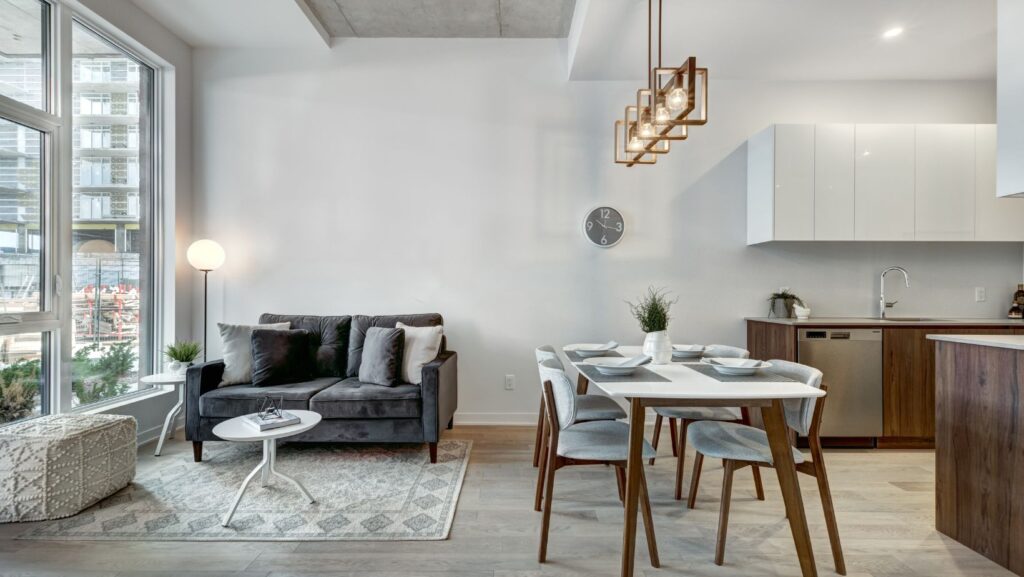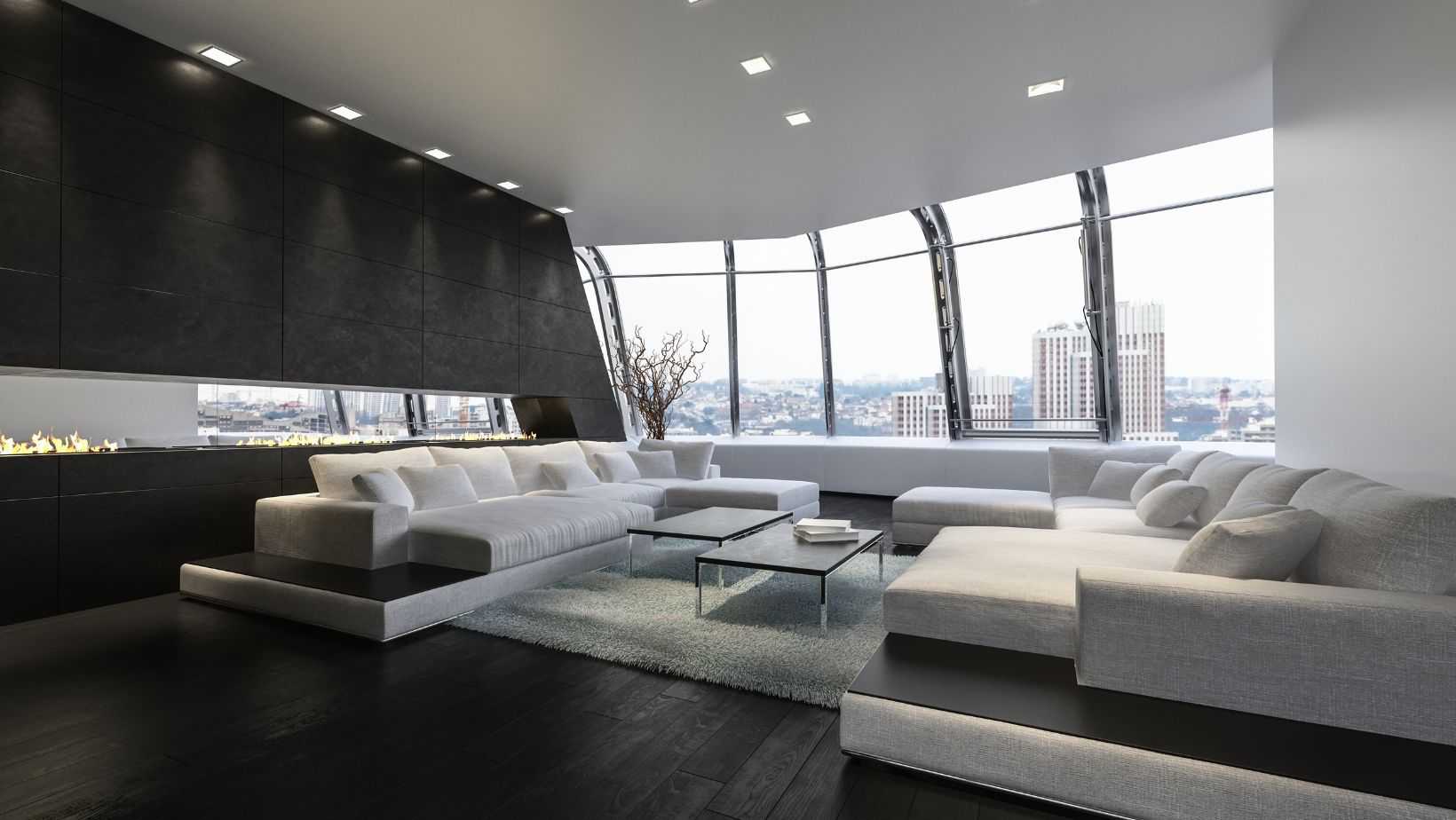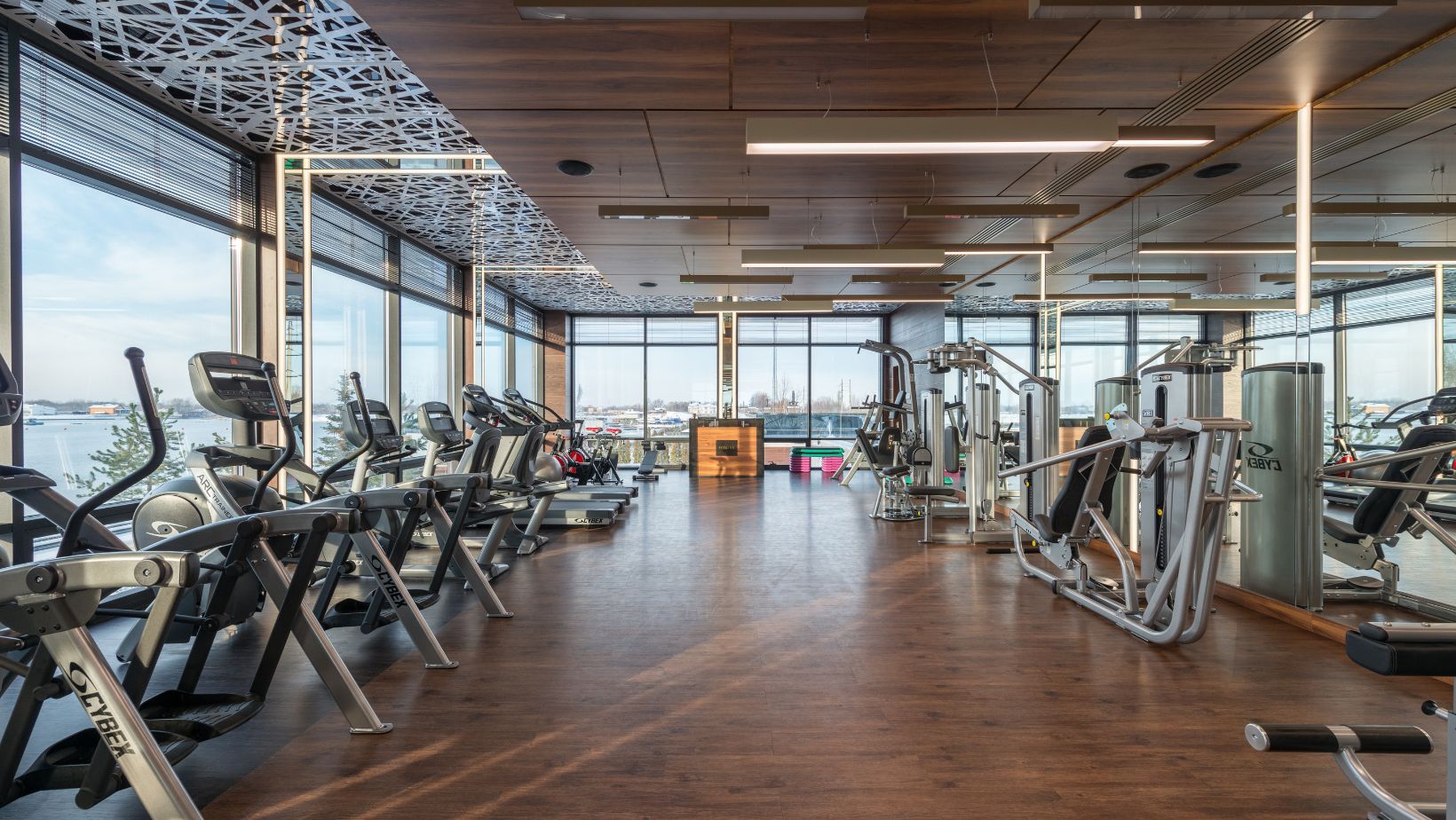
When searching apartments for rent, understanding and appreciating the importance of shared-space etiquette can be invaluable. Etiquette in communal spaces is crucial to fostering a pleasant, cohesive environment within apartment complexes that feature shared areas. Respectful interactions among tenants are foundational to building camaraderie and a sense of belonging, where each resident feels comfortable and valued.
When tenants embody these values, they actively shape the atmosphere of their community, enhancing everyone’s living experience. From reporting maintenance needs promptly to caring for common areas, tenants’ actions foster a sense of unity that benefits everyone.
Cleanliness and Organizational Tips
When tenants prioritize cleaning up after themselves in communal areas, they are not only exhibiting personal responsibility but also contributing to a positive and harmonious living environment for everyone. The act of maintaining cleanliness and order in shared spaces goes a long way in promoting a sense of community and mutual respect among residents.
Creating a structured cleaning schedule can be a proactive approach to ensuring that all communal areas within an apartment complex are consistently well-maintained. By establishing a rotating system among roommates or building residents, each individual can take turns performing cleaning duties, thereby distributing the responsibility fairly and promoting a sense of collective ownership over the shared spaces. This practice not only helps in keeping the environment clean but also fosters teamwork and cooperation among tenants.
Utilizing designated storage areas within communal spaces is another effective way to promote organization and prevent clutter. Encouraging roommates or flatmates to store their personal belongings in allocated spaces not only enhances the visual appeal of the common areas but also minimizes confusion and disputes over shared storage spaces.
Adopting a “clean as you go” mentality can significantly impact the overall cleanliness of communal areas. Encouraging individuals to tidy up immediately after using shared spaces such as kitchens or living rooms can prevent the accumulation of mess and ensure that the areas remain inviting and presentable at all times.
Proper waste disposal is an essential aspect of maintaining cleanliness in communal areas. Reminding tenants to discard trash in designated bins and follow recycling guidelines not only helps keep the environment clean and hygienic but also contributes to sustainability efforts within the community.
Communication and Conflict Resolution
By maintaining a sense of calm and composure when addressing issues with fellow residents, you set the tone for constructive dialogue and resolution.

Imagine a scenario where a disagreement emerges over shared responsibilities in the communal laundry room. Instead of reacting impulsively or defensively, taking a moment to breathe and collect your thoughts can make a significant difference in how the situation unfolds. Keeping emotions in check, speaking in a measured tone, and actively listening to the concerns of others are all integral components of addressing conflicts calmly in shared living spaces.
While attempting to resolve conflicts directly with other residents is often the preferred approach, there are instances where seeking assistance from apartment management becomes necessary. This step is particularly relevant when conflicts persist, escalate, or involve issues that require professional intervention.
For example, if disagreements among roommates lead to disturbances that affect the well-being or comfort of other tenants, involving management can help mediate the situation impartially. Additionally, situations that pose safety risks, violate house rules, or breach lease agreements should be promptly brought to the attention of apartment management for appropriate action.
Lounges and Common Rooms
When engaging in social activities within these shared spaces, mindfulness and respect for others should be at the forefront of one’s interactions. This involves being aware of noise levels, particularly during evening hours, and making an effort to keep volumes at a level that does not disturb fellow residents.
Understanding and respecting boundaries, both physical and conversational, is key to fostering a sense of mutual respect and consideration in the apartment community. By maintaining a balance between social engagement and privacy, residents can contribute to a positive living environment where everyone feels comfortable and valued.
The furniture present in common areas of an apartment complex is designed for the enjoyment and convenience of all residents. Treating these items with care and respect is not only a display of good manners but also a reflection of one’s regard for shared property. Avoiding rough handling, damage, or misuse of common area furniture is essential to preserve the aesthetic appeal and functionality of these spaces for the long term.
Moreover, being conscientious about spills and messes is vital in upholding a standard of cleanliness and hygiene that benefits everyone in the community. By promptly addressing any accidents or spills and ensuring that the furniture is maintained in good condition, tenants contribute to a welcoming and inviting atmosphere that enhances the overall living experience for all.
Alongside socializing and using shared furniture responsibly, the utilization of communal amenities demands a similar level of consideration and cooperation from residents. Whether it’s a shared pool table, game console, or television, these amenities are meant to be enjoyed by all members of the community.
As such, it is important to be mindful of fair usage and courteous behavior when accessing these resources. Setting time limits or rotating usage schedules can help ensure that everyone has a chance to benefit from these amenities without monopolizing them. Furthermore, taking care of shared amenities by cleaning up after use and returning them to their original state exemplifies a sense of shared responsibility and respect for the collective space.
Gyms and Fitness Areas
In communal gym and fitness areas within apartment complexes, it is essential to adhere to proper etiquette when using the equipment. Being mindful of others sharing the space, it is courteous to wipe down all equipment after use to maintain cleanliness and hygiene for the next user. Furthermore, it is important to return weights, dumbbells, and any accessories to their designated spots after use, ensuring that the gym remains organized and safe for everyone.
Maintaining good personal hygiene is not only a matter of self-respect but also an act of consideration toward fellow residents in shared gym areas. Before engaging in a workout session, it is advisable to take a quick shower to freshen up and ensure cleanliness.

Additionally, wearing clean workout attire and using deodorant can help minimize unpleasant odors and promote a more pleasant environment for everyone using the gym.
Effective scheduling of workouts is key to ensuring a smooth and accommodating experience for all tenants utilizing the communal gym areas. To promote fairness and avoid overcrowding, it is recommended to plan workout sessions during non-peak hours when the gym is less likely to be busy. This consideration allows for a more comfortable and efficient use of equipment for all residents.
Contributing to a Positive Community Environment
Encouraging friendliness and promoting small acts of kindness, such as holding doors open or exchanging greetings with neighbors, plays a fundamental role in shaping a positive atmosphere within shared living spaces. These simple gestures not only cultivate a sense of warmth and inclusivity but also lay the foundation for building strong communal relationships among apartment residents. By embracing friendliness as a core value, tenants contribute to a welcoming environment where individuals feel acknowledged and valued, fostering a sense of belonging and camaraderie.
The impact of maintaining a positive attitude on the shared living experience cannot be overstated. A positive mindset not only influences one’s personal well-being but also has a ripple effect on the overall dynamics of the community. Approaching interactions with optimism and respect paves the way for smoother communication, mutual understanding, and, ultimately, a more enjoyable cohabitation experience for everyone involved.












